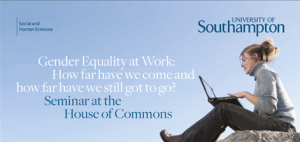Sex work futures?
It’s the start of the new term for Universities and Colleges throughout the world. Choices and compromises have led new students to embark on courses that are likely to profoundly influence their future careers – because of the knowledge and skills they acquire, because of the networks of contacts they build and because of the previously unthought-of of possibilities that they are awakened to. Of course, universities can also influence future career choices in other ways and student clubs and societies can also play a role in developing people’s future career choices and opportunities.
So far this sounds like a dull homage to the benefits of a university education and the role of extracurricular activities in preparing for the future. Not really the stuff of a blog on work futures and, let’s be frank, potentially disappointing given the title of the blog. Not so.
Here is the thing. Last week, the annual University of Southampton Fresher’s week ‘RAG’ showcased the work of many student societies, including the University Pole Dancing Club. Now I must confess that encountering a pole dancing demonstration outside a University Students Union was, for me, rather unexpected. I was equally surprised that the display was not the subject of any protest by members of the student body, but perhaps my view on these things has been skewed by being a the University of Sussex in the 1980’s where (I am fairly certain) such things would not have been tolerated.
I know that pole dancing is now being pushed as ‘exercise’, but let’s be very clear about this. It is a form of exercise that is based on a form of sex work. This got me thinking. Am I simply a dinosaur stuck in the past? Perhaps sex work is just one more career opportunity and if some members of the University Pole Dancing club find their way into the sex industry because their horizons are broadened while at university, so be it. Certainly evidence from recent surveys suggests that sex work does have a role, potential of actual as a means of supplementing students’ income while at University in the UK. The ‘mainstreaming’ of sex work seems widespread in other developed economies.
So can we regard sex work as ‘just another job’? Is it simply a choice that some (mostly women, although by no means exclusively) choose to make, as free and legitimate as any other? Perhaps for some it is, I really don’t know. But what I do know is that sex work operates in a context that is associated with human trafficking and forms of slavery. Sex work operates in a context that relies on the objectification of other human beings in a way that is often predicated on treating them as less than fully human.
You might protest not in this country (are you sure?), not our University Club (of course not!), not pole dancing (…maybe?). Perhaps, but in my view, until the sex industry operates in a world where women are universally given equal opportunities the association between sex work and exploitation is too close for me to ever feel comfortable with pole dancing being treated as just another recreational activity or a fully informed career choice. Of course, exploitation is not confined to the sex industry and when we consider the future of work we should consider the many forms of exploitation that remain hidden to a greater or lesser extent – cheap labour in sweat shops comes to mind. Perhaps next year the Fresher’s fair could include a sponsored sweatshop in which students have to produce garments at high speed in order to get enough money for tomorrow’s food? Or would that be seen as distasteful? It certainly would not be seen as opening up a career opportunity
Some might find it reassuring, others depressing (perhaps it is both) that the club raised a grand total of £2.10 for charity at the Fresher’s fair – the lowest of any of the clubs or societies listed on the University web site.

